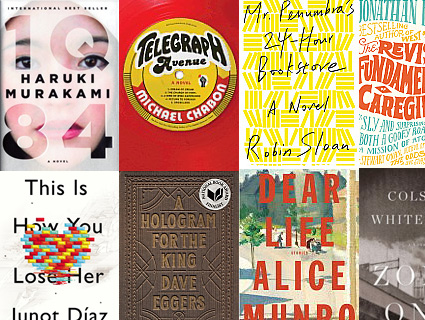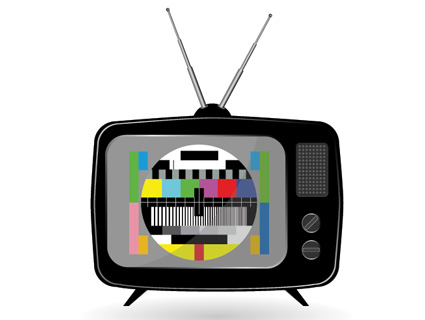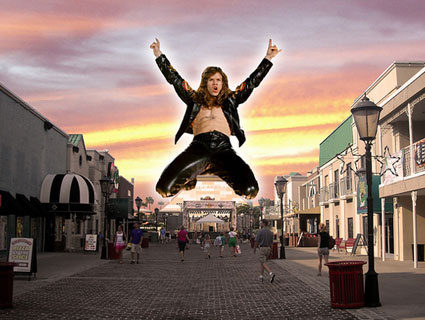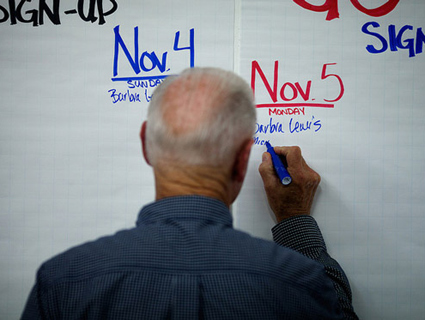So many great books, so little time. We asked MoJo staffers for their favorite nonfiction releases this year, and they came up with this nice eclectic mix. You also shouldn’t miss our staff picks for fiction, music, and film & television. (Audiophiles can check out our resident music critics’ Top 10s, and snarky film buffs will enjoy Swin’s list of 2012’s “most glorious and fantastic” movies.)
Waging Heavy Peace, by Neil Young. Like his classic work with the band Crazy Horse, Young’s first memoir (he’s suggested he’ll do another) has been written following the axiom that the first take is usually the best; the result is quirky, revelatory, and completely engrossing. —TL
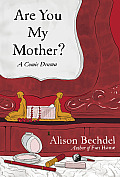
Are You My Mother: A Comic Drama, by Alison Bechdel. I inhaled this graphic novel/memoir, in which Bechdel, a lesbian author and cartoonist, explores her relationship with her mother, and her mother’s complicated marriage to Bechdel’s (probably bisexual) father with wit, keen insight, and poetry. —TL
(TL = Tim Luddy, creative director)
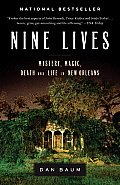
Nine Lives: Mystery, Magic, Death, and Life in New Orleans, by Dan Baum. It’s so easy for media to miss New Orleans entirely in their portrayals, yet Dan Baum hits the nail on the head by showcasing nine uniquely New Orleans characters as they triumph and travail over the course of the fifty years in between the two great hurricanes that left indelible imprints on the city and its people. —JH
Catherine the Great: Portrait of a Woman, by Robert K. Massie. Boring, slow, and painful to read are not adjectives that describe this captivating and intimate account of the life of the great Russian Empress. —JH
(JH = Jacques Hebert, public affairs manager)
Twilight of the Elites, by Christopher Hayes. Full disclosure: He’s my former boss, but this is a great examination of America’s inequality gap and the “crisis of authority” we’re facing. From bailouts to baseball, Hayes fingers the suspects. —Brett Brownell, multimedia producer
The Black Count: Glory, Betrayal, and the Real Count of Monte Cristo, by Tom Reiss. The amazing and true story of the Thomas-Alexandre Dumas, born to a slave in Haiti and named a count in pre-Revolutionary France—an extraordinarily brave fighter for freedom and the principles of the French Revolution and in Napoleon’s army of conquest. —Steve Katz, publisher
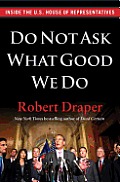
Do Not Ask What Good We Do, by Robert Draper. So Jesse Jackson Jr. and Allen West walk into an elevator and…it’s about as awkward as it sounds. It had been more than a decade since Washington had seen a conservative wave quite like the 112th Congress, and Draper, the New York Times Magazine‘s distinguished political reporter, walks us through it all—move-in day with Louie Gohmert, a Congressional Black Caucus briefing with its only Republican member, and the tensions between the House majority’s desire to get things done and toe the line on the (often quite extreme) principles that got it elected. —TM
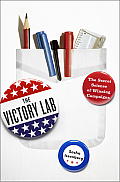
The Victory Lab, by Sasha Issenberg. Because we had to put up with a year of political pundits mocking the idea of hiring “data scientists” to work on a campaign. Because Karl Rove envy is so 2004. Because political campaigns have undergone a quiet revolution over the last two decades that most of us never even noticed. Because in this case, the cliché on the back of the book was actually pretty much spot-on: This is Moneyball for politics and it’s almost as good. —TM (Read our Q&A with Issenberg here.)
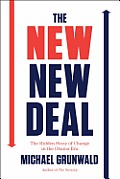
The New New Deal, by Michael Grunwald. In his first book, The Swamp, about the development of South Florida, Grunwald did the unthinkable: He made the inner machinations of the Army Corps of Engineers sound quite riveting. This time he does one better, turning the 2009 American Recovery and Reinvestment Act (a.k.a. the stimulus), a $790 billion package of spending and tax cuts, into a gripping tale of the president’s quest to reinvent Washington. Forget Solyndra; Grunwald’s stimulus is packed with cutting-edge technologies like electrofuels and a newly ascendant solar market. It stopped getting positive headlines long ago, but the ARRA in Grunwald’s telling may just be the change Obama promised. —TM
(TM = Tim Murphy, reporter)
The Influencing Machine, by Brooke Gladstone. Here’s an illustrated spin through the history of media, with NPR’s Gladstone as your adept narrator. With excellent graphics by Josh Neufeld and the insight that legions of On the Media fans crave, The Influencing Machine is a great pick for anyone who loves the press, or at least loves to hate on the press. —Kate Sheppard, reporter
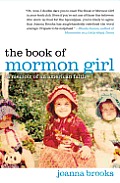
Book of Mormon Girl, by Joanna Brooks. Brooks, who was brought up in a strict Mormon household in California, tells of how she left the faith and then eventually found her way back—on her own terms. This honest memoir explains how she learned to challenge the parts of the church doctrine that she didn’t believe in (e.g. its stance on homosexuality) while celebrating the parts that she found valuable (the emphasis on self-sufficiency and pioneer spirit). —Kiera Butler, senior editor
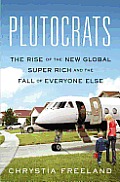
Plutocrats, by Chrystia Freeland. Freeland, digital editor (and former global editor-at-large) at Reuters, goes on an anthropological mission to capture the mindset of the new global elite. How do you maintain faith that what you are doing is good and righteous while amassing spectacular wealth at the expense of everyone else? As someone fascinated by what makes other people tick, especially those I disagree with, I found that an engrossing and worthwhile quest. —Monika Bauerlein, coeditor-in-chief
The River Cottage Fish Book, by Hugh Fearnley-Whittingstall and Nick Fisher. The UK’s brilliant Fearnley-Whittingstall demonstrates how we can eat fish and have healthy oceans, too. And like the rest of their cookbooks, this one’s pithily written, gorgeously illustrated, and satisfying like a platter of cider-braised mussels. —Tom Philpott, food ad ag blogger
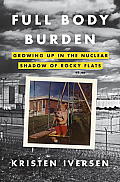
Full Body Burden: Growing Up in the Nuclear Shadow of Rocky Flats, Kristen Iversen. A chilling and expertly executed account of one woman’s interactions with the plutonium trigger plant outside her window in suburban Colorado. The government whitewash of the environmental and health problems that emerged around the Rocky Flats facility was in many ways more disturbing than the plant’s toxic innards, and Iversen weaves in her only family’s tragedies without becoming maudlin. —MO
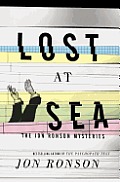
Lost at Sea: The Jon Ronson Mysteries, by Jon Ronson. In this collection of essays, the author of The Men Who Stare at Goats chronicles people with extreme beliefs in everything from Christian conversion to telepathic children to signals from the great beyond. Ronson’s willingness to jump through innumerable hoops for his investigations makes for revealing and wacky material. —MO
(MO = Maddie Oatman, research editor)
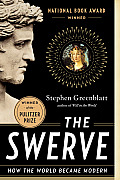
The Swerve: How the World Became Modern, by Stephen Greenblatt. Now out in paperback, The Swerve is satisfying on so many levels it is hard for me to imagine a day when I have not considered this great work. I was thoroughly entertained and inspired reading about the richly detailed lives and careers of 14th-century scribes. These book lovers fought against the ignorance of their time, and this account of their passionate struggle to find, collect, and cherish rare manuscripts—each volume copied by hand onto parchment—gives us amazing perspective into the origins of humanist thought. That much of our modern outlook was founded on the epicurean ideas of our ancient past—kept alive by the obsessions of a handful of individuals—provides a welcome glimmer of hope for humanity in our tenuous era. —Claudia Smukler, production director
